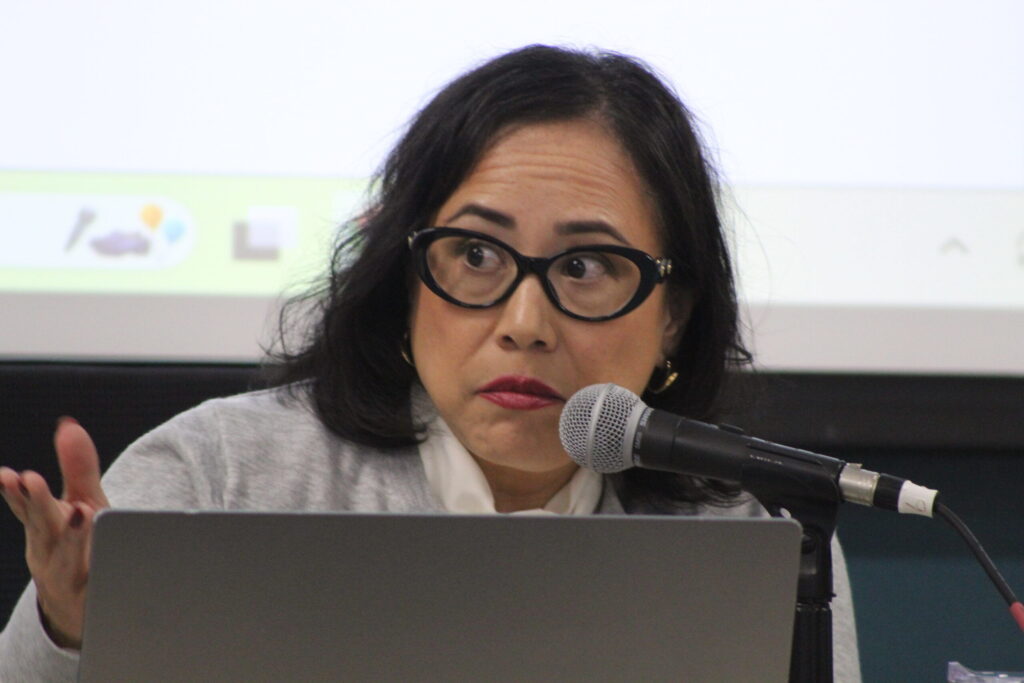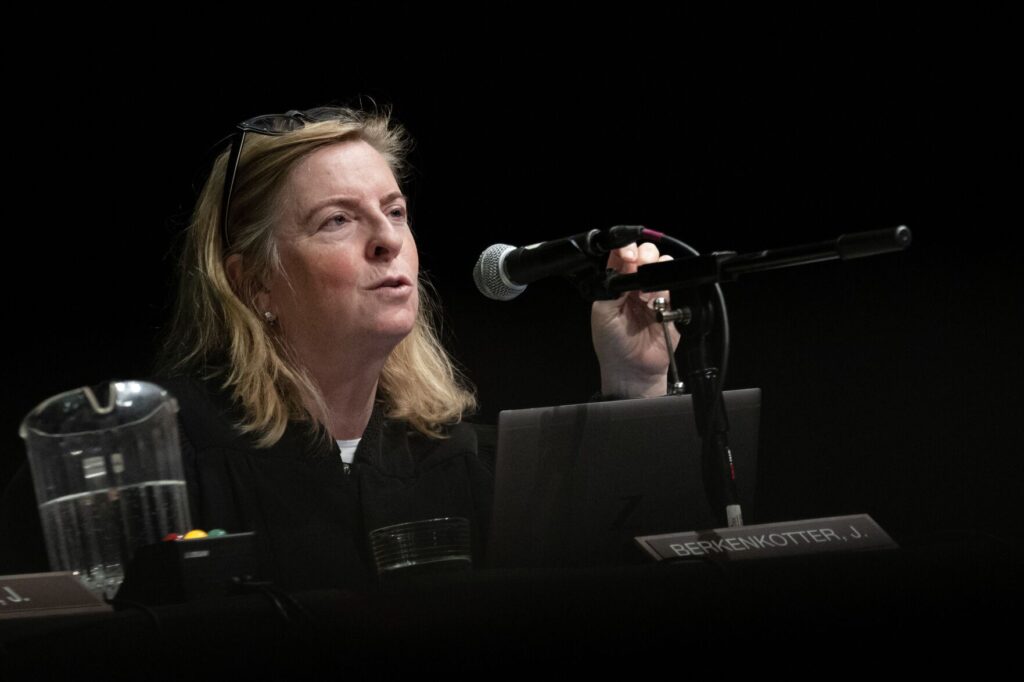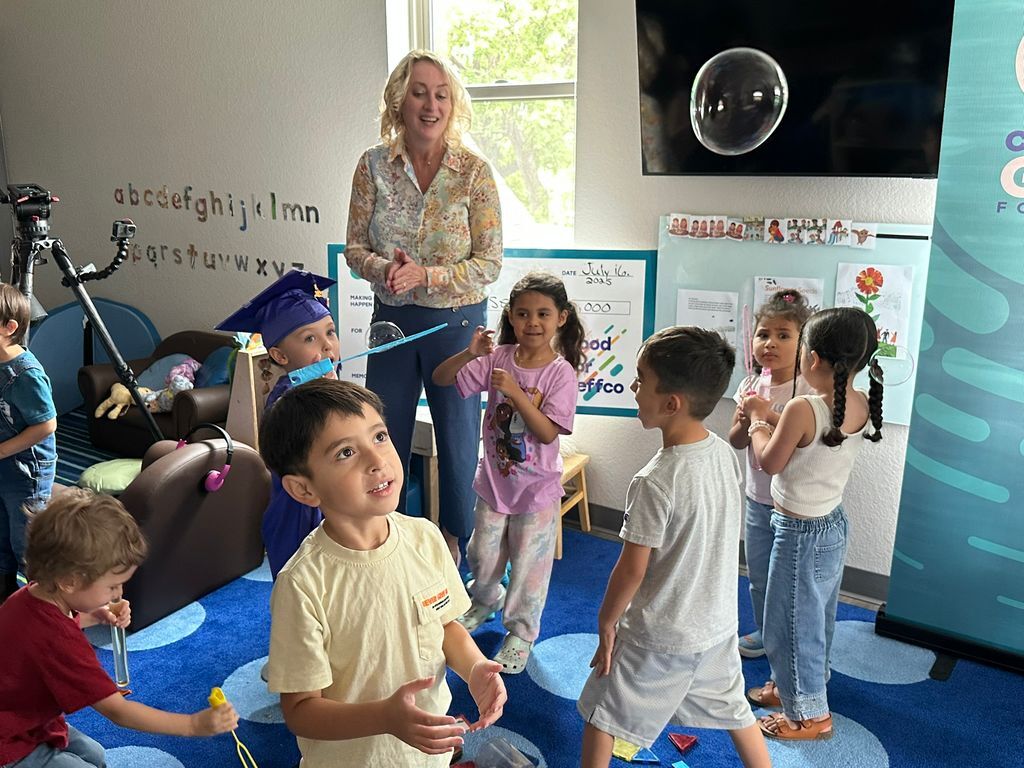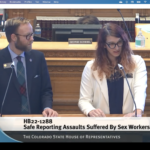Q&A with Sen. Janet Buckner | Senator on her past and future in the Capitol

Sen. Janet Buckner never thought she’d be in politics, but she’s about to celebrate her seventh year serving in the Colorado legislature.
After a long career as a speech and language therapist and a medical salesperson, Buckner retired in 2007 but was thrust into action when her husband, former Rep. John Buckner, died in office. Buckner was unanimously elected to succeed him in July 2015. Since then, she has sat on the state House of Representatives and the state Senate, even serving as speaker pro tem of the House.
An Aurora Democrat, Buckner has sponsored more than 50 bills that became law, such as the CROWN Act, which prohibited discrimination based on race-related hair types and styles, and the Equal Pay For Equal Work Act, which prohibited gender pay discrepancies for employees doing the same work. Her policies have earned her endorsements from dozens of political heavyweights, including former President Barack Obama.
More than a year into her first term as senator, Buckner sat down with Colorado Politics to reflect on her past and future in the Colorado legislature. Here’s what she told us.
Colorado Politics: You moved to Aurora in 1975. Where are you from originally and what brought you to Colorado?
Buckner: I’m from Indiana, I’m a Hoosier. When my husband and I graduated from college, we took teaching jobs in the suburbs of Chicago. After we were there for about six years, my husband was offered a job here in Colorado with Cherry Creek Schools. We had never been to Colorado. We came, fell in love with it and never left.
CP: Your political career began when you succeeded your husband in the state House of Representatives after he passed away. What made you want to step up in that way?
Buckner: Oh, thank you for asking that question because it is so important to me. He was a brilliant man. He was a lifelong educator. Every night when he would come home from work, even if he had a committee until midnight, we would talk about what happened in committee. I would listen in to a lot of his committees because he was chair of education. So, that just got to be a habit. I never thought I would be in politics – never.

When he passed unexpectedly, my phone started ringing off the hook. Here I am grieving, can’t believe my husband died, and people are asking me to take his place. I just kept saying, “No, no, no.” One day, a lot of very influential people in the state of Colorado and across the country kept calling me, saying, “We really think you would be the perfect fit.” And I thought, “Me?” So, my son and I sat on the front porch with a yellow legal pad and put the pros and the cons on this legal pad. The pros list kept getting longer and longer and longer, and I decided I’m going to do it. And it was the best thing I could have done.
CP: What did you want to accomplish when you first got to the House?
Buckner: To continue his legacy. I continued his legacy, and I was able to take my grief and turn it into purpose. And it’s still hard, it’s still hard. But our approach to politics is totally different. I am more outgoing than he was. He was more academic. I am more pragmatic. I remember asking him about seeing lobbyists and he was very particular about who he saw. With me, I’m particular, but I believe in giving everybody an opportunity to talk. Every lobbyist who wants to talk to me, I talk to them because I think it’s really important to hear all views. That’s just who I am. But, like I said, it’s probably the best thing I could have done. I really feel that I’m fair and that I’m making a big difference here in the Capitol.
CP: In 2020, you left the House and successfully ran for the Senate instead. Tell me about that decision.
Buckner: I thought, what a perfect segue to go from the House to the Senate and take that experience and my ability to work with people. One of my strongest assets is my ability to work with people. That’s so important to work across the aisle, and I’m not afraid to take on tough challenges, either. I was speaker pro tem in the House, which was one of the biggest honors you can have. I felt like I had done as much as I wanted to accomplish in the House.
I had lots of friends who I worked with in the House who went over to the Senate, and they kept saying, “We need you over here.” Sen. Nancy Todd was term limited, so she called me up and said, “Janet, I want you to follow me because we have the same views on education, health, etc., and we really believe in working for our constituents.” Then, the senator before her, Suzanne Williams, called me and said, “You have to, the only choice is you.” So, they both encouraged me to go for the Senate. I won by a really big margin, and I like it. I like it in the Senate. I miss my friends in the House, but I really like the Senate. Working with a smaller group of people, I just feel like we get so much done. Not that we didn’t get a lot done in the House, but I like working with that more intimate group of people.
CP: Looking at your legislative career across the House and Senate, what elements or goals did you carry on for your husband?
Buckner: I ended up being vice chair of the education committee. He was chair when he left. So, I ended up being vice chair of education because I am a former educator and I was able to run a lot of bills that he had discussed. In fact, I found his notes and there was an idea that he had for a bill, so I took that idea and ran it. The bill is amazing. He always believed that, in high school, you should take the hardest classes you could. He just thought everyone should challenge themselves. So, this bill, when you take your test at the end of the year, if you get a certain score, you automatically go into the most advanced class.
When I passed that bill, I felt like, wow, I really accomplished what he would’ve wanted me to accomplish. They had the bill signing at the school where he had been principal, and the governor came. Everybody was just raving about this bill. It was like a dream because I remembered my husband coming home, talking about kids who were really brilliant, but their counselors did not put them in the most academic classes. And usually this happened with kids of color. That’s probably one of the bills that was my biggest accomplishment. I felt like I really continued his legacy on that one. And then I’ve branched out and done some other things.
CP: What areas in your legislative career did you carve out for yourself?
Buckner: Education and health equity. When I went to the Senate, I decided to branch out and I did some restorative justice bills. The bills that I have sponsored have really been important for equity for all, for young people especially. I think people are afraid to talk about race. I’m not. I tell stories, I tell people about experiences I have had, and it’s like a lightbulb comes on for them. When I tell them about things that occurred in my life that were really difficult because I’m a woman of color, I think it makes people relate and have a better understanding of race relations. I’m very understanding, I’m very open to having very difficult conversations, and this is even across the aisle.

I’m proud of everything that I’ve done. I’ve run so many really important bills. This year, the new Department of Early Childhood is one of my bills. That’s so important because when kids get a good start, they do so much better in life. And I want every kid to have that opportunity to have that early start with their academics. So much of your brain is formed before you even get to kindergarten. I’m really excited about that, and my husband would be really proud of that, too.
CP: We’re about halfway through the legislative session and you’re already the prime sponsor of 15 bills that have been introduced. Tell me about your priorities this session and what bills you’re most excited about.
Buckner: I’m most excited about everything for the early childhood bills. But I’m also really, really proud of the community and public safety bills that I’m running. I think we have to gain trust back in the communities. I think I’m the right person to give the message, because everybody’s talking about community safety right now. We have to regain trust in all of our communities. You have to have a certain trust level with who’s running legislation and I feel like people trust me. I hope they do.
CP: As you touched on earlier, you’re one of few women of color in the legislature. How does that feel and how does that impact your policy decisions?
Buckner: I feel like I have a lot on my shoulders. I really feel like I have a big load on my shoulders to represent everyone as best I can. Women of color are not represented well, so I’m glad that I have that voice. It does make a big difference in what I decide to sponsor. I have personal experiences that make me know how important that legislation is and then what people in the community have told me. So, yeah, it does make a difference. It really does.
When I run legislation, I always think about the people who sent me here. My Senate district is so diverse, so I always think about the people who sent me here and I make sure that they are first and foremost in my planning. And I’ve had a lot of people call me up or send me letters and say, “We just relate to you. We don’t care what color you are. We don’t care what race you are. We just relate to you.” Because I’m so thoughtful and I’m so common sense and I really do listen to my constituents because, to me, that’s my responsibility. Other people may not agree with my thinking, but I just do the best I can. I make the best decisions I can for as many people as I can.
CP: You have a reputation in the Capitol of being one of the kindest and sunniest people around. How do you keep your spirits so high while working on such difficult issues?
Buckner: It’s just me. I keep a positive attitude about everything, and it helps me with all my decision making. I always try to see the good side of everything or the bright side of everything. And this is not an easy place to have that attitude, but I think there is a bright side to everything that I do and every bill I run and every piece of legislation I pass. This is just Janet. This is the way I’ve always been. When I have this much responsibility on my shoulders, I take everything I do really seriously and keep a good attitude about it.
CP: You recently celebrated your 75th birthday. Do you plan on slowing down or are you going to go full steam ahead into reelection after your term ends?
Buckner: My husband only lived to be 67, so I feel blessed to be alive. I’m just going to keep going. I haven’t decided about (reelection), but I don’t have any plans to stop soon. I still have two more years in this cycle. And then I’ll decide after that.

FAST FACTS
Age? 75
Family? Three adult children – a son and twin daughters – and three granddaughters.
Favorite Aurora restaurant? The Summit Steakhouse before it closed. Now, the Athenian Restaurant.
Favorite place to travel? Dubai, where one of my daughters lives.
Something about you most people don’t know? I was a majorette and I know how to twirl a baton. I still have my baton, too, sometimes I still twirl it because it’s good for your fingers.
Story behind your favorite song, “Meeting in the Ladies Room”? I don’t remember what year it came out, but I just remember every time I would hear that song, I would start singing it. It has a really catchy tune. So, when I would have meetings, I would just tell people I have a meeting in the ladies’ room. Sometimes the men would look at me like, “What are you talking about?”














